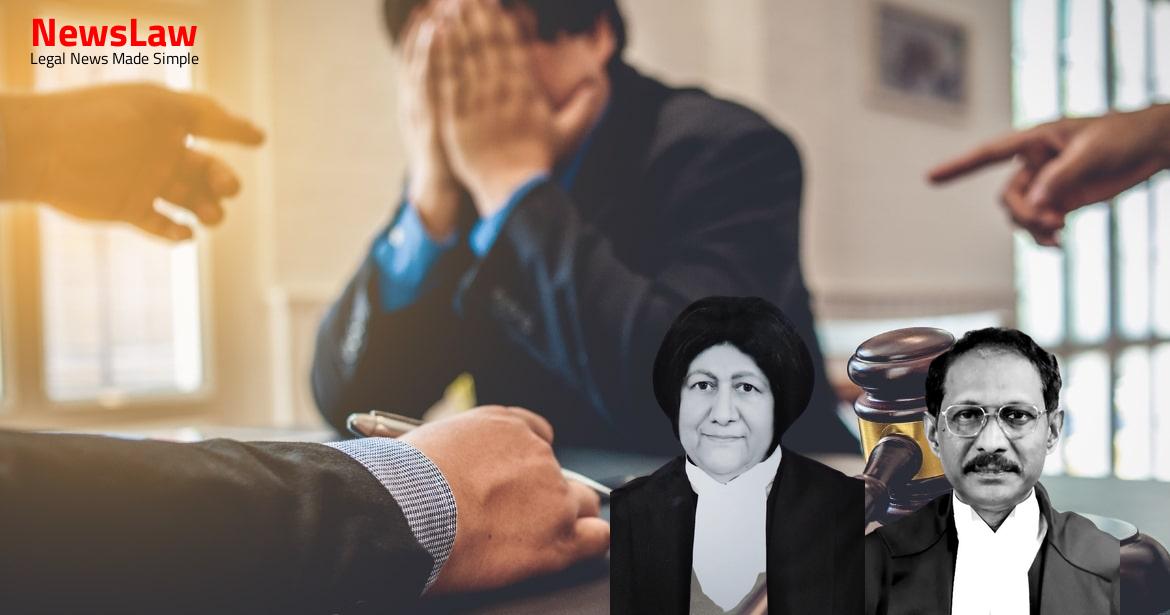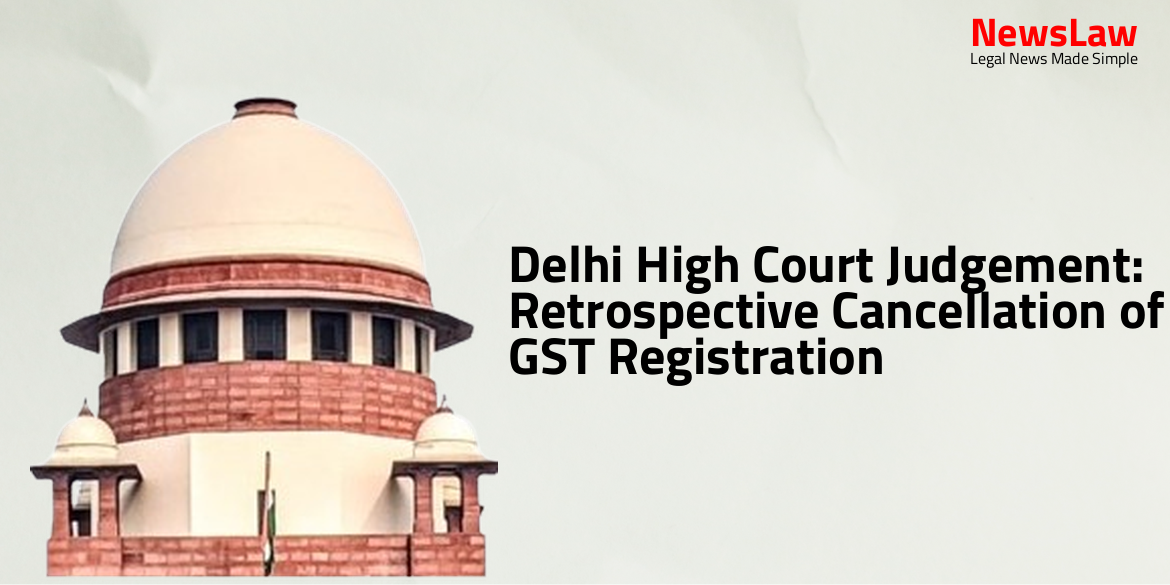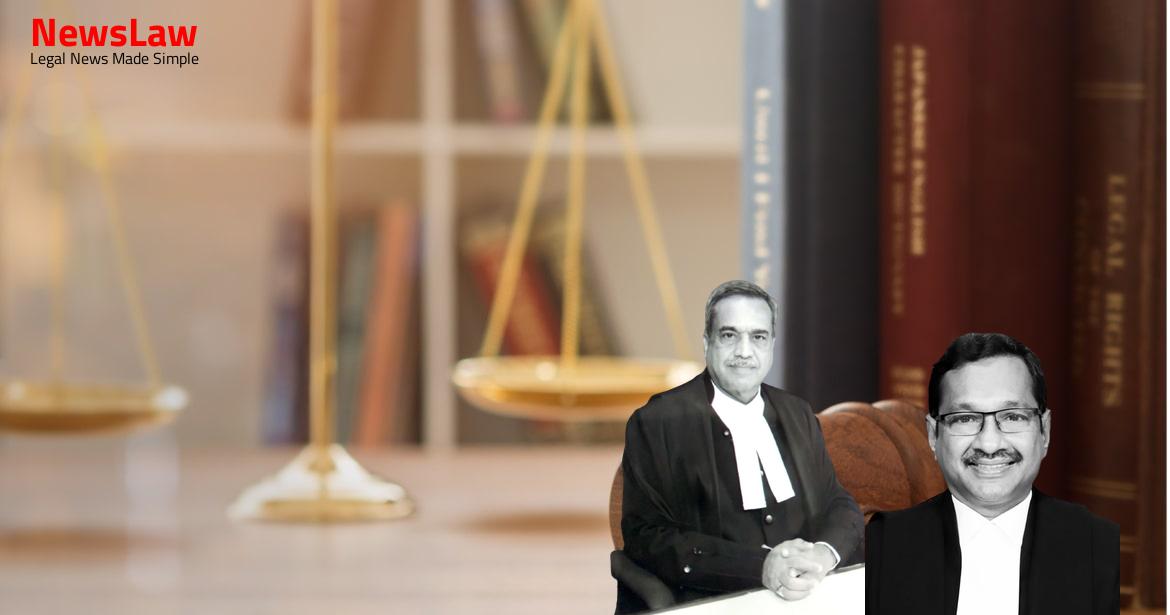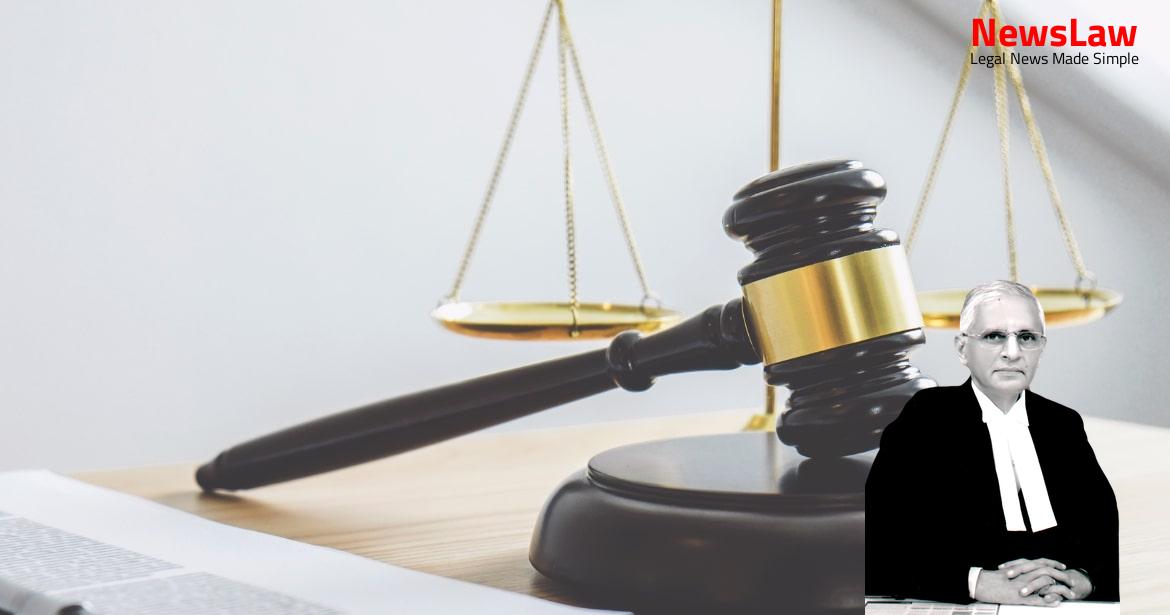Delve into the intricacies of judicial review regarding classification in employment rules with this informative blog. The High Court’s thorough legal analysis sheds light on the importance of reasonable classification and equitable treatment under the law. Find out more about the touchstone for classification, the right to equality, and the deference courts should show to relevant authorities in policy-driven decisions.
Facts
- The Division Bench of the High Court of Madhya Pradesh (Indore Bench) dismissed the Writ Appeal No 301/2016.
- The Single Bench had allowed the Writ Petition No 14027/2010 filed by the respondent.
- The Single Bench directed the Appellants to grant the Respondent-Writ Petitioner the benefit of the University Grants Commission scale of pay from the date of her initial appointment.
- The respondent-writ petitioner contended that her service conditions were governed by the 1990 Rules applicable to institutions under the Higher Education Department.
- The Ayurvedic Colleges under the Ayush Department do not receive financial aid from the UGC as per the appellants.
- The respondent-writ petitioner claimed the UGC scale of pay after 8 years of service, based on the 1990 Rules.
- The respondent was appointed to the post of Librarian-cum-Museum Assistant with a basic pay of Rs. 950, under the Madhya Pradesh Public Health (Indian System of Medicine and Homeopathy), Class-III Recruitment Rules 1987.
- The High Court judgment in Writ Petition No. 5438/2000 influenced the decision, leading to the respondent’s successful completion of probation and confirmation in service.
- The appellants argued that the respondent was governed by the 1987 Rules and not the 1990 Rules, as the Ayurvedic College was under the Ayush Department and not the Higher Education Department.
- The State Government applied UGC scales to colleges under the Higher Education Department receiving UGC financial aid, reaffirming that the 1990 Rules were not applicable to the respondent.
Also Read: Analysis of Financial Statements as Acknowledgment in Limitation Act Case
Arguments
- The Courts can interfere in exceptional cases of discrimination between employees appointed in the same manner with the same eligibility criteria and identical duties.
- Differential treatment does not violate Article 14 of the Constitution if there is a reasonable basis for the classification based on exigencies and diverse situations.
- Discrimination for providing benefits to an identified group of persons does not amount to arbitrariness if it serves a specific class of individuals.
- Specific Rules for Ayush Department employees were framed in 2013 and could not be retrospectively applied.
- The Respondent-Writ Petitioner had wrongly been granted a scale of pay as per the 2013 Rules, which came into force in 2013.
Also Read: Landmark Legal Analysis in Conviction Appeal Case
Analysis
- The Ayurvedic Colleges in Madhya Pradesh are under the Department of Medical Education.
- Recruitment to the post of Physical Training Instructor is governed by the 1987 Rules.
- The 1987 Rules categorize Physical Training Instructors as Class II Non-Ministerial.
- The post of Sports Officer is mentioned in the Schedules appended to the 1990 Rules.
- Reasonable classification is based on factors like mode of recruitment, qualifications, nature of work, and responsibilities.
- Different eligibility criteria existed for Museum Assistant-cum-Librarian under the 1987 Rules and Librarian under the 1990 Rules.
- There is no designated post of Librarian cum Museum Assistant in the 1990 Rules.
- Rules applicable to Ayush Department employees do not extend UGC pay scale.
- 1990 Rules supersede the 1987 Rules for Ayush Department employees.
- Reasonable classification is essential for equitable treatment under the law.
- Courts should not interfere in policy-driven classifications but defer to relevant authorities.
- The touchstone for reasonable classification is a common man’s approach.
- The classification should be viewed in line with the avowed object behind it.
- The right to equality encompasses the right to non-discrimination.
- Experts’ recommendations for classifications should be respected by the courts.
- Erroneous grant of UGC pay scale to one does not automatically extend it to others not covered by the rules.
- Social, revenue, and economic considerations are valid parameters for classifying groups.
- Minimum qualifications differed for Museum Assistant cum Librarian between 1987 and 1990 Rules.
- The judgment in the case of M.K. Verma pertained to librarians of Engineering Colleges and Medical Colleges and is not applicable in the facts and circumstances of the instant case.
- Differentiation must be clearly distinguishable with adequate demarcation for Article 14 to be satisfied.
- Good faith and intention are presumed unless proven otherwise.
- The Court cannot intervene in government policy decisions based on personal perceptions of fairness or wisdom.
- The educational qualification for direct recruitment to the post of Sports Officer is a Post Graduate Degree in physical education with specific percentage requirements.
- Comparison between the 1987 Rules and 1990 Rules shows different classes of employees, educational qualifications, and scales of pay for the specified posts.
- The 1987 Rules regulate recruitment to Class III Ministerial and Non-Ministerial posts in specific colleges, while the 1990 rules regulate recruitment to various posts in the Educational Service including Sports Officer.
- The case of Ramesh Chandra Bajpai was referenced.
- In M.K. Verma, complete parity in pay scale for librarians in Medical/Engineering Colleges until a certain date was noted.
- Classification should not be arbitrary and should conform to justice and fair play.
- Respect the wisdom of other wings in making classifications, unless it is bordering on arbitrariness or discrimination.
- Decisions made in line with the above criteria should not be subject to suspicion or scrutiny.
Also Read: Analysis of Territorial Jurisdiction in Arbitration Transfer Petition
Decision
- The impugned orders of the High Court of Madhya Pradesh are set-aside.
- Pending applications, if any, shall stand disposed of.
- For the reasons discussed above, the Appeal is allowed.
Case Title: STATE OF MADHYA PRADESH THROUGH PRINCIPAL SECRETARY Vs. SEEMA SHARMA (2022 INSC 560)
Case Number: C.A. No.-003892-003892 / 2022



